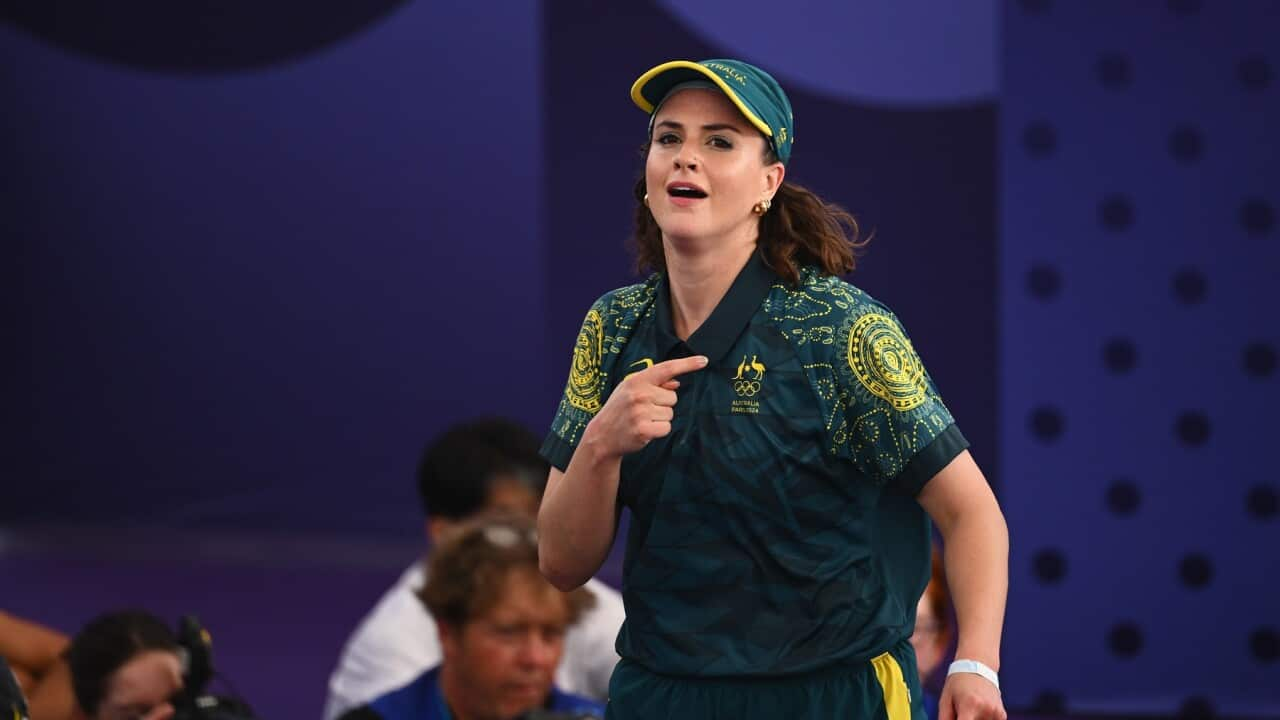TRANSCRIPT:
Breakdancing or breaking first emerged on the streets of New York in the 1970s.
It made its Olympic debut as a sport in this year's Paris Games and it's even caught the attention of pop icon Adele.
"It's the best thing that's happened in the Olympics the entire time. Did anyone see the breakdancing lady?"
That breakdancing lady is the Australian breaker dubbed 'Raygun'.
She did not earn a single point in her three round robin matchups – prompting a hostile response online and in some mainstream media.
But Australia’s chef de mission Anna Meares says Raygun has her full support, comparing her efforts with other women who’ve fought for recognition in the sporting world.
"If you don't know Rachael's story, in 2008, she was locked in a room crying, being involved in a male-dominated sport as the only woman and it took great courage for her to continue on and fight for her opportunity to participate in a sport that she loved and that got her to winning the Olympic qualifying event to be here in Paris. She is the best breakdancer dancer, female, that we have for Australia. Now you look at the history of what we have had as women athletes has faced in terms of criticism, belittlement, judgement, criticism and simple comments like they shouldn't be there."
Breaking Chief Judge Martin Gilian has also defended Raygun.
He says creativity must always be applauded.
"For breaking when you look for originality or innovations, you always search outside of dancing or not always, but many times outside of dancing, like martial arts, how the animals move. She was doing this to represent her country, her region, and she created some original moves which could be maybe funny or entertaining for others, but for us, she basically represented breaking and hip hop.”
But some critics have said their concerns have nothing to do with the points.
They are instead pointing to inconsistencies between Raygun’s work as a PhD level Breaking researcher and her Olympic performance.
In particular, Raygun’s academic work claims many breakers are fearful that the World DanceSport Federation, and the Olympics more broadly, will detach breaking from its African American and Puerto Rican cultural roots.
She even laments the idea that fundamental aspects of breaking may be lost in the process of its international-level sportification.
But First Nations author and Professor at the University of Queensland Chelsea Watego says Raygun has, ironically, achieved exactly that.
"As a cultural studies scholar in the area of breakdancing, I presumed she would have a sophisticated understanding of breakdance, its history, its political origins, its function. But that journal article that she wrote started with all the media requests she got when breakdancing made it on the Olympic stage. How is that the starting place for this story? How is her rising to the top the starting place?"
She also questions whether this is a gender issue at all.
"We’re meant to believe that a white woman winning is advantageous for us all and the irony is she didn’t win anything, she didn’t even score a point. But this is our moment of progress for women? Only a white women can concoct such a fantasy and get such national buy-in to the story."
Other critics have pointed to an inconsistency in the way her Refugee counterpart, Manizha Talash, was treated.
Talash was disqualified after she wore a cape that read "Free Afghan Women" during her pre-qualifier battle – a feminist statement of her own.
World DanceSport Federation President Shawn Tay has defended that decision.
"She knew beforehand what she should not do. And she agreed to it and she chose to do it. And at the end of the event and her actions, we spoke with her and she said she knew what she'd not supposed to do, but she decided to do it. So this is her choice. And we do what we can to disqualify her."
Breaking is not on the program for the Los Angeles Olympics in 2028.
And the community remains divided on Raygun.
Bronx-born Puerto Rican breaker Crazy Legs says that while the online hate is unwarranted, Raygun should not have been allowed to perform.
"However people are enabling dancers to reach these platforms when they are nowhere near ready has to be fixed. Bow out next time. Allow your friends, Raygun, allow your friends… and I don’t know whether they’re keeping it 100 with you but if they are telling you you’re not as good as you think you are, take heed because it leads to situations like this."













